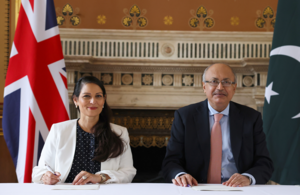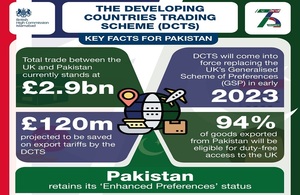£161 million to transform Oxford Station, bringing faster journeys to thousands
- government to fund £161m of upgrades at Oxford Station boosting economic growth and opportunities in the local area
- faster journeys, increased capacity and new platform, cycling paths and entrance
- this is one of the inaugural projects under the Rail SPEED scheme which aims to deliver rail projects quicker at lower costs
Oxford station is set for a £161m revamp, which will deliver quicker journeys, increased freight and passenger services and a brand new fully accessible entrance.
Announced today (17th August), by Rail Minister Wendy Morton, the upgrades will be completed by 2024 and have been specifically designed to improve passenger experience, better integrate the station into the local road networks and boost economic growth by supporting the creation of almost 10,000 jobs in the area.
Among the upgrades will be the creation of a brand new track, platform and fully accessible entrance on the west side of the station, making travel far easier for all passengers. As one of the busiest stations in the South of England, managing 8.7 million passenger journeys a year pre-pandemic, the new track and platform will significantly improve capacity at the station, which will boost connections, the economy and job opportunities in the area with almost 10,000 new roles being supported as a result of the project, drawing talent and investment to both the City of Oxford and the numerous sciences, innovation, technology and business parks located across the county.
Funding will also be used to renovate the existing road bridge on Botley Road to create a four metre wide cycling and walking path and allowing standard height double-decker buses to pass underneath for the first time ever. It will also fund three new high-speed crossovers to be created, which will enable trains to turn around in the station, increasing services and reducing journey times.
Rail Minister, Wendy Morton said:
While union bosses continue on their campaign to inflict maximum disruption to the lives of everyday people with strikes, I am busy getting on with the job at the hand, modernising our railways to create one which is fit for the 21st Century and meets the needs of the modern day passenger.
This £161 million will truly transform the region, increasing the number of services for passengers, boosting economic growth by connecting people to new opportunities and increasing freight services between the South and Midlands.
The upgrades will play a central role in boosting economic growth and opportunities in the local and surrounding areas and increasing freight services to the equivalent of about 500 lorries per day between Southampton Ports container hub, the Midlands and North West – increasing supply chain resilience while supporting the environment.
Oxford Station is one of the first projects delivered through the government’s new scheme SPEED (Swift, Pragmatic and Efficient Enhancement Delivery) which aims to halve the time it takes to complete a rail infrastructure project and slash the cost of project delivery – helping local areas to build back better through investment.
Mike Gallop, Network Rail’s Western route and strategic operations director, said:
We are delighted to have been awarded this significant amount of funding from the Department for Transport, which will enable us make positive substantial improvements to Oxford station and railway for the benefit of our passengers and freight customers.
A new entrance, new additional track and platform, and improved accessibility will transform this station so that is fit for the 21st century and significantly enhance its capacity for increases in passenger numbers and future services such as East West Rail.
Work at the station will begin later this year, with the Botley Road improvements expected to be completed by the end of 2023 followed by the new platform and entrance which is set to open in 2024.

